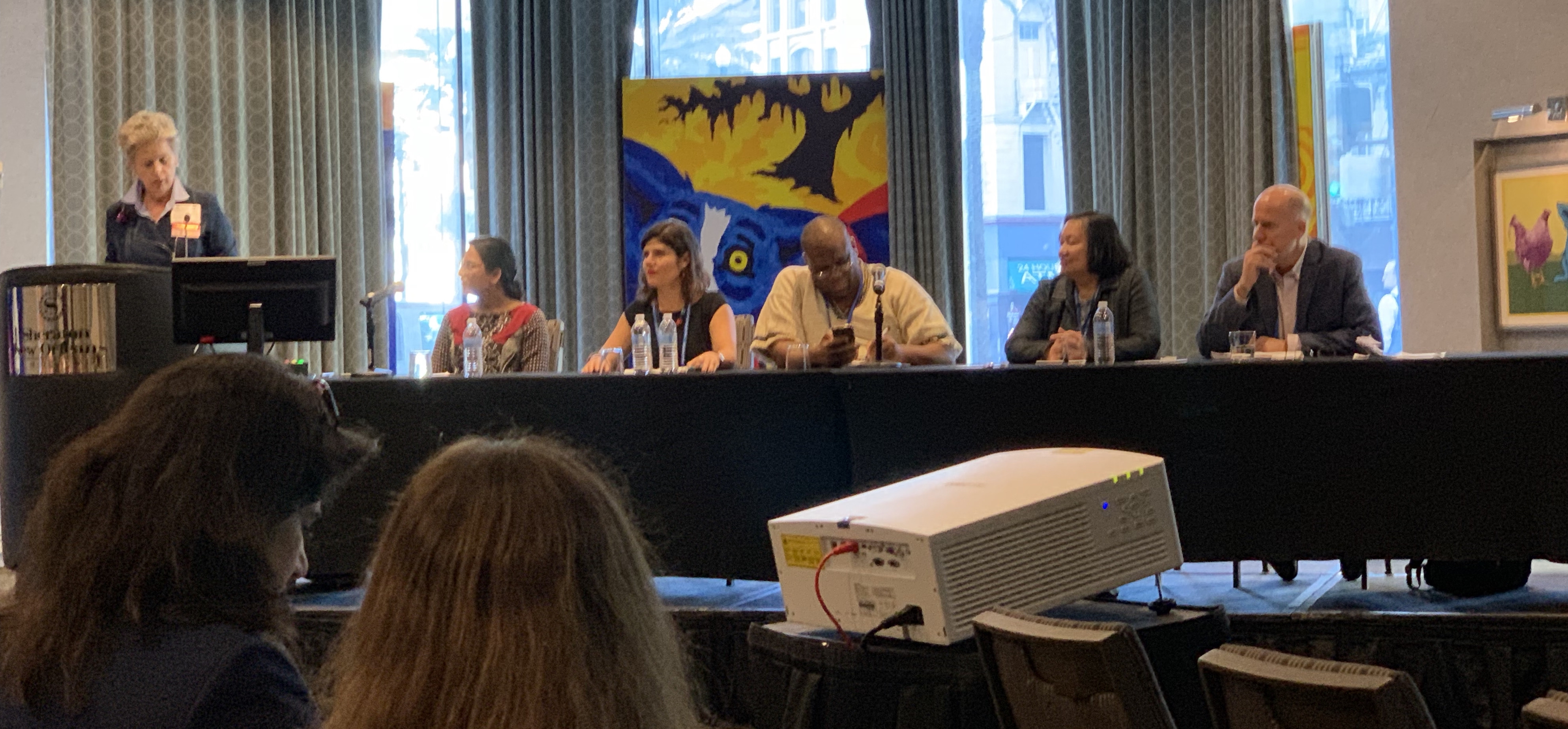ASTMH Annual Meeting 2025
blogWomen Are Not a Vulnerable Population; They Are Drivers of Global Health
By: Mellisa Roskosky

This blog was written by Mellisa Roskosky of the Johns Hopkins Bloomberg School of Public Health, an early career attendee to TropMed18 and guest blogger.
Women make up approximately 75% of the global public health and social workforce, but only a quarter of the leadership positions. In a crowded evening session at the 2018 ASTMH Annual Meeting, panelists explored the challenges women face. In the hopefully waning age of “manels” (all male symposium panels), this session’s panel was a welcome display of diversity and a refreshingly honest discussion of an important, yet too often overlooked, topic.
Dr. Roopa Dhatt, Executive Director of Women in Global Health, opened the session by sharing data on women’s representation in global health. Women make up 90% of the bottom of the workforce pyramid, while the heads and agenda-setters of global health organizations are only 25% female. Public health is not immune to the gender wage gap that is experienced in many other fields, but, shockingly, 50% of the contributions of women in global health is unpaid work. The disparities between men and women in the field are stark and trickle into all aspects of global health work – fewer women first authors, fewer women receiving awards in the field, even bias in how we talk about women versus men in global health. This matters, Dr. Dhatt argued, because addressing gender equality produces dividends across several of the United Nation’s Sustainable Development Goals.
The panel--Dr. Desiree LaBeaud of Stanford University; Dr. Mosoka Fallah of the National Public Health Institute of Liberia; Dr. Jetsumon Prachumsri of Mahidol University; and Dr. Daniel Bausch, the ASTMH Scientific Program Chair--then turned the discussion to experiences of women in the field and the challenges they face, and strategies and advice to solve these problems.
Often, women in the global health field find themselves working in offices dominated by men. This can lead to women being left out of key discussions and being overlooked when they are included. The panel members and many in the audience reflected a common feeling that in these settings you end up either stuck with the work you are given or left out altogether. The solution: find a champion–man, woman, or even yourself–who will back you up in a meeting, give you credit where it is due, and pull you in when you are being left out. And provide, or suggest, opportunities for everyone to speak in meetings.
The panel led another important discussion about safety and sexual harassment at home and abroad. A difficult conversation to have, the panel reflected on the unfortunate reality women are faced with and how vital it is to know the proper actions, channels and support networks. Dr. LaBeaud highlighted a program at Stanford University School of Medicine that trains their students and residents to recognize harassment and what to do when you are a victim or witness it in the workplace. These types of programs can create a safe environment for women to speak up and create awareness.
The panel and audience also reflected on an important principle in the conversation about harassment in the workplace: A safe space is safe for everyone.
The overwhelmingly productive and thoughtful conversation turned to an area that has not been widely discussed in the global health community: the inclusion of LGBTQ individuals. The realities of working in a global field mean there are a variety of political and social opinions and experiences. Each country is different and each person unique. However, one tenet all could agree on was that organizations and those in the global health space should strive for not only gender equity, but human equity.
As Dr. Dhatt noted, the global economy is projected to create around 40 million new health and social sector jobs by 2030. Hopefully these conversations will continue to create solutions to ensure that women are poised to step into those roles.
Related Posts
By: Matthew Davis, Burness